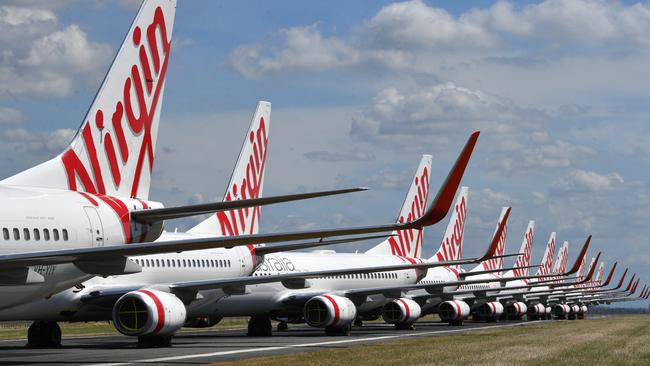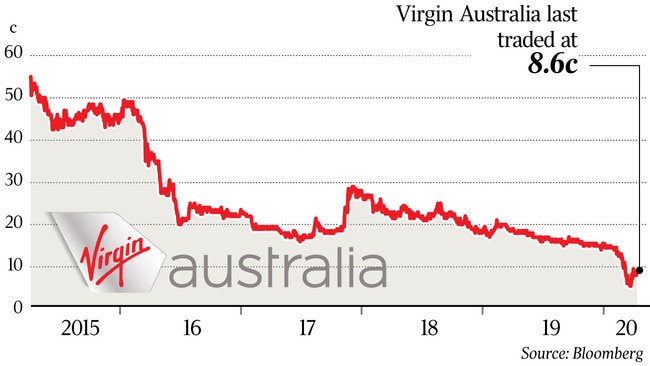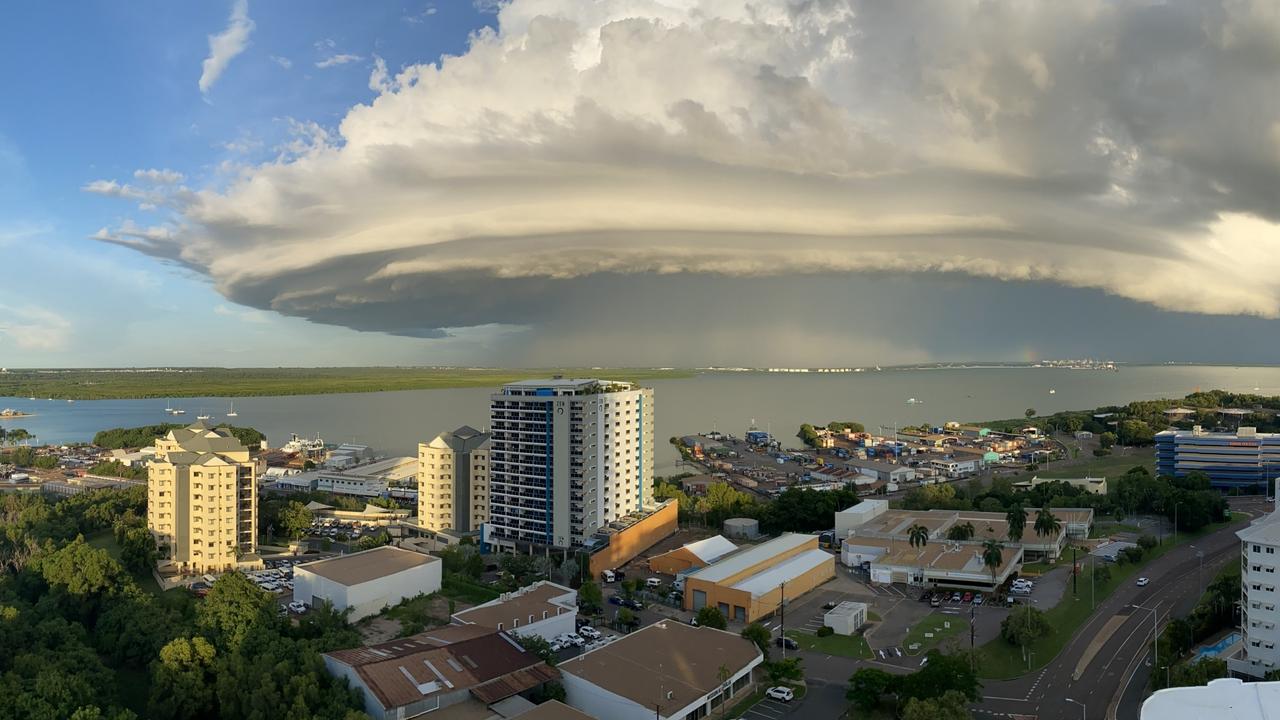Grounded airlines fight to survive
At a time of year when the skies should be humming with aircraft, the opposite is true.

At a time of year when the skies should be humming with aircraft packed with passengers and airports a hive of activity, the opposite is true.
Australia’s biggest carriers have reduced services to almost nothing in response to fading demand from travellers under strict orders to “stay at home” and stop the spread of coronavirus.
There are more aircraft parked at Sydney, Melbourne, Brisbane and Avalon Airports than flying out of them, and two of the country’s top holiday destinations, the Gold and Sunshine Coasts, have temporarily closed their main terminals.
With no commercial passenger flights scheduled for the foreseeable future, Gold Coast Airport chief operating officer Marion Charlton said it was a “challenging time”.
It’s just as grim on Australia’s west coast, with Perth Airport CEO Kevin Brown warning of a $100m financial impact to the end of June.
“Ultimately we will have to temporarily close some terminals due to the complete fall-off in interstate and international flights,” he said.
In a clear SOS to government as it fights to survive, Virgin Australia has axed all but one domestic route — a daily Melbourne-Sydney return flight.

Qantas is still flying a pared-back schedule of services but with Easter traffic down 95 per cent on last year, further reductions are likely. At the same time, talks are continuing with the federal government about what sort of bare-bones domestic network may be needed to keep the country moving in the weeks and months ahead.
As the situation becomes increasingly dire, Virgin Australia chief executive Paul Scurrah’s calls for help appear to be going unheeded.
Deputy Prime Minister Michael McCormack on Thursday acknowledged the “significant reduction in services” by Australia’s two major airlines, but made no commitment to answering Virgin’s plea for a $1.4bn loan facility.
“We continue to talk to airline executives on a regular basis as we navigate this unprecedented situation,” Mr McCormack said.

“All levels of government, airports, airlines and the whole sector will need to work together to ensure Australia’s aviation industry emerges from this crisis in the best position possible.”
Veteran aviation consultant Neil Hansford believes the government should be thinking about how to save Qantas — never mind Virgin.
Although CEO Alan Joyce has repeatedly assured shareholders and customers the airline is well-positioned to survive a prolonged crisis, there are warning signs that could suggest otherwise.
Despite organising a $1bn loan to bolster its cash reserves, Qantas is refusing to pay rent owed to airports for lounge and office space, and has “deferred payment” of aeronautical fees collected from passengers during February and March.
Like other travel companies, the Flying Kangaroo’s share price has crashed and more than two-thirds of its workforce have been stood down.
Licensing arrangements for in-flight entertainment have been suspended, and Qantas has told suppliers it will be halting orders temporarily and in about 100 cases, deferring payment.
The measures are aimed at managing cash flow so Qantas is still standing at the end of what Mr Joyce has called the “the worst crisis the aviation industry has gone through”.
If it did not survive, the outlook for Australian travellers was grim, said Mr Hansford.
With no Qantas, Australia would be served by the Gulf carriers Emirates, Etihad and Qatar, Singapore Airlines, Delta, United and at least 10 Chinese carriers, he said.
“It would be my considered opinion that no money should be wasted on Virgin or Rex (Regional Express) as the shareholders have no proven long-term commitment to the Australian market, nor can the Virgin shareholders financially step up anyway,” Mr Hansford said. “Any money available to aviation should be held in reserve to bail out Qantas if needed, and then the government would take back a controlling interest in Qantas.”
He said regional services should be operated by a fleet of Dash 8s and ATRs for public service routes, and “charter by demise” arrangements made with operators like Alliance.
The Brisbane-based carrier, with an all-Fokker fleet of 49 aircraft, has also been touted as a possible “replacement” for Virgin Australia should the airline fail to see out the crisis.
When Virgin Australia, then known as Virgin Blue, stepped up to take the place of Ansett in late 2001, the airline had a mere nine aircraft in its fleet.




To join the conversation, please log in. Don't have an account? Register
Join the conversation, you are commenting as Logout